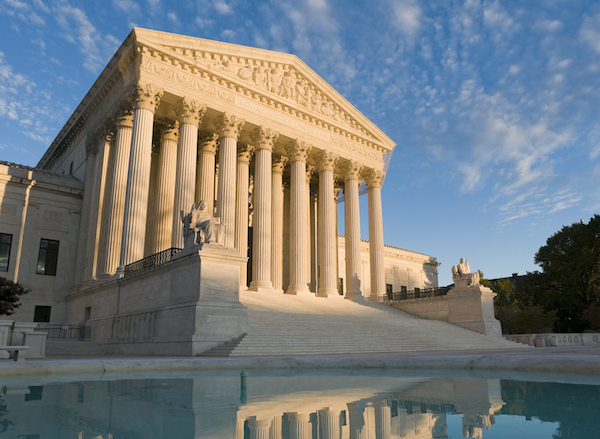
The U.S. Supreme Court has given religious institutions a free hand to cheat their employees.
According to the court’s decision today, church-affiliated corporations are exempt from a rule meant to protect employees from companies that promise them retirement but fail to deliver.
The Employee Retirement Income Security Act (ERISA) regulates retirement plans. It requires that company pensions meet, among other things, certain funding requirements. This ensures that individuals who rely on those retirement plans are not fleeced, defrauded or recklessly disregarded by their employers. But ERISA exempts church retirement plans from requirements such as paying insurance premiums, meeting minimum funding standards, and even disclosing funding levels to plan participants. That exemption now extends to religious employers, such as Catholic hospitals, which account for one in six hospital beds in this country and more than half a million employees, many of whom are not Catholic.
Churches have been exempted from these rules on the understanding that a church will take care of its employees. The assumption is that the Catholic Church would not allow a retired Catholic priest to starve or go homeless. (FFRF has contended that even this limited exemption is unconstitutional). Expanding this exemption to all religious employers becomes even more suspect. Will Catholic hospital corporations take care of the hundreds of thousands of doctors, CNAs and janitors when the pension funds they mismanage implode?
FFRF had argued in amicus briefs before several federal appeals courts that the church exemption is unconstitutional. They agreed with FFRF. The Supreme Court ruled 8-0 in the other direction after an appeal from religious hospitals.
FFRF pointed out to lower courts that these pension funds are often severely underfunded, with 90 percent of those plans in critical status. The employees are not part of the church, and yet the religious employer, engaged in a secular pursuit — providing health care — can now swindle its employees in the name of God.
The only good news is that this dense, 15-page Supreme Court opinion is focused solely on statutory interpretation. There is no discussion of religion or religious freedom. Basically, the Supreme Court said that Congress intended to exempt religious hospitals from the important ERISA rules that protect employees, and that the lower courts — the 3rd, 7th and 9th Circuits — misinterpreted the statute.
“We’re dismayed that the U.S. Supreme Court has interpreted the law in a way that serves to hurt employees and help churches,” comments FFRF Co-President Dan Barker.
The Freedom From Religion Foundation is a nonprofit organization that protects the constitutional separation between state and church, representing more 29,000 nonreligious members across the country.
Photo via Shutterstock by Gary Blakeley

